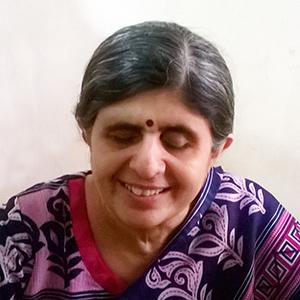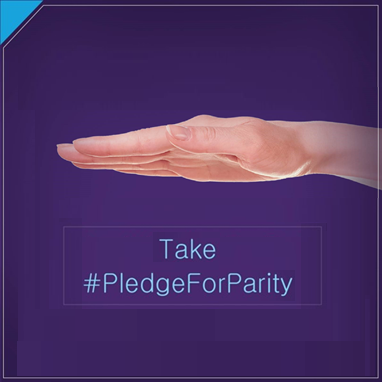
Dipti Bhatia is the deputy director of Vidya Sagar, a Chennai based organization working with persons with multiple disabilities. Undeterred by her own congenital visual impairment, she strongly advocates inclusion and empowerment of women with disability.
Have you observed any gender difference as far as policies and practices are concerned in Special Needs Schools like Vidya Sagar?
There is no gender discrimination from the school as far as policies and practices are concerned. The school does not discriminate in any way on the basis of gender. Our focus is purely on disability, and not on whether the student is a boy or girl. The admission of a child is decided on the level and nature of disability, not on gender. We may be a Special Needs School, but our policies and practices are just like other schools. Vidya Sagar is a co-ed school with about 4,000 children currently. However, as compared to boys, the ratio of girls may be a little lesser.
It is seen that parents are often overprotective about their children with disability, especially about stepping out in the world and being independent. Again, do you see a difference in attitude towards male and female young adults?
Yes, a difference in attitude between boys and girls does exist. This discriminatory attitude is essentially prevalent amongst parents and guardians. Like in the larger society, parents tend to get overprotective and discriminatory about their daughters; here too, parents are more cautious about their daughters. The foremost concern of parents of daughters with disability is the safety of the girl child. That’s why parents hesitate to send their daughters out into world. Also, there is very little expectation from people with disability. This becomes even lesser as far as girls are concerned.
What are the subtle forms of rejection and exclusion that you encounter especially from people who are well meaning?
Society is slowly trying to include women with disability in the workforce and other areas, but we still have a long way to go. Besides employment, if we look at other social institutions like marriage, family, life etc, these are not even thought about by the community at large, especially as far as women with multiple disabilities are concerned.
What is the role of community - online and physical communities that you see and would like to see in empowerment and inclusion of people with disabilities?
I think it is important to build safety networks for women with disability. Inclusion of issues related to women in general like independence, financial opportunities, education, employment are equally applicable to women with disabilities. Women’s movements should take into account the concerns and issues of women with disabilities.
While progress is being made on inclusion of people with disability, there are still wide deviations across the country. What would be your wish on International Women's Day in getting more women with disability centre stage?
On International Women’s Day, it would be a big achievement for us, if society recognizes women with disabilities as women first. Disability alone is not their identity. We need to build capacity of girls/women with disability to protect themselves and realize their full potential.







